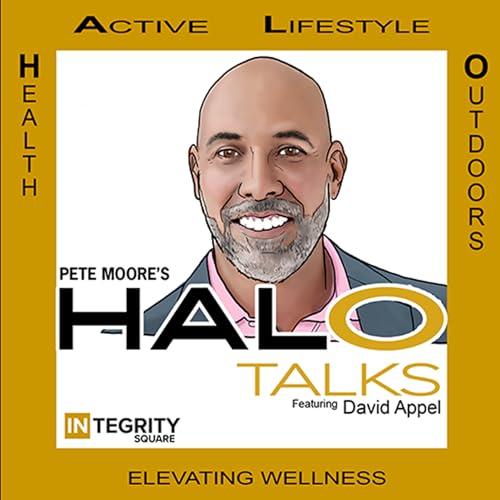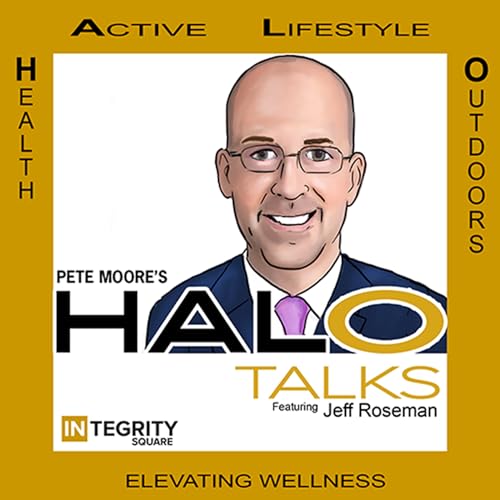In this episode of HALO Talks, host Pete Moore reconnects with longtime friend and real estate industry veteran Jeff Roseman, Vice Chairman at Newmark and previous guest. (Podcast #151. Link below.) Together, they dive into the surging demand for fitness and wellness tenants in New York City, discussing how the HALO space has helped revitalize the retail and office markets.
Jeff shares insider perspectives on landlord-tenant dynamics, the nuances of leasing deals—including the New York-centric "good guy clause"—and the importance of understanding market economics. The conversation covers emerging concepts, evolving tenant rep strategies, and the exciting growth of new brands shaping the city's HALO landscape.
Whether you're a seasoned operator, an aspiring entrepreneur, or just curious about what's driving NYC's commercial real estate trends, this episode is packed with practical insights, some fun anecdotes, and a bullish outlook on the future of in-person fitness and retail.
On the good guy clause Roseman says, "The good guy guarantee is just you basically guaranteeing that you're going to stay in the space, you're guaranteeing that you're going to pay rent, and if business is terrible and you have to leave, you just hand back the keys . . . because getting the keys back from a delinquent tenant can take a year, if not longer. And that really screws everything up."
Key themes discussed
- Surge in fitness/wellness tenants in NYC real estate.
- Landlord flexibility with new fitness concepts and brands.
- Importance and explanation of the Good Guy clause.
- Tenant support: Financial guidance and market understanding.
- Shifts in lease terms, rents, and office building resets.
- Notable fitness/wellness brands landlords favor recently.
A Few Key Takeaways:
1.Fitness & Wellness Tenants Are Booming in NYC: Jeff mentions that fitness and wellness tenants in NYC surged by 40% year-over-year. The variety of brands—from Pilates to high-intensity and recovery concepts—highlights a vibrant, evolving landscape that's energizing the local commercial real estate market.
2. The HALO Sector Has Been a Lifeline for Commercial Real Estate: Fitness, wellness, and associated businesses have played a crucial role in making office buildings more attractive post-pandemic. Amenities like fitness centers, healthy cafes, and wellness offerings are now seen as vital for drawing people back to workspaces, not just traditional banks or drugstores.
3. Landlord-Tenant Dynamics & the Role of Good Guy Guarantees: Pete and Jeff also talk about the "unique" structure of New York City leases, especially the use of the "good guy" guarantee. This provision allows independent operators flexibility to exit a lease without ongoing liability if things don't work out, while big national chains with strong credit are typically held to stricter long-term obligations.
4. Site Selection Is About More than Just Rent and Buildout Costs: Roseman emphasizes the importance of understanding market dynamics, competition, and location history—not just the physical space or potential cost savings from a previous tenant's buildout. Success comes down to execution, market insight, and a thorough understanding of what makes a site (and business model) viable.
5. The Resilience of In-Person Retail and Fitness: Despite predictions that online shopping and the pandemic would devastate brick-and-mortar retail and fitness centers, Jeff Roseman is bullish on the future. In-person experiences—whether for workouts, wellness, or shopping—are proving essential, and new, creative concepts continue to drive the city's vibrancy.
Resources:
- Jeff Roseman: https://www.linkedin.com/in/jeffreydroseman
- Jeff's prior HALO Talks: https://www.halotalks.com/jeff-roseman-vice-chairman-newmark-knight-frank
- Integrity Square: https://www.integritysq.com
- Prospect Wizard: https://www.theprospectwizard.com
- Promotion Vault: https://www.promotionvault.com
- HigherDose: https://www.higherdose.com
 32 分
32 分 29 分
29 分 28 分
28 分
 28 分
28 分 31 分
31 分 28 分
28 分 27 分
27 分
